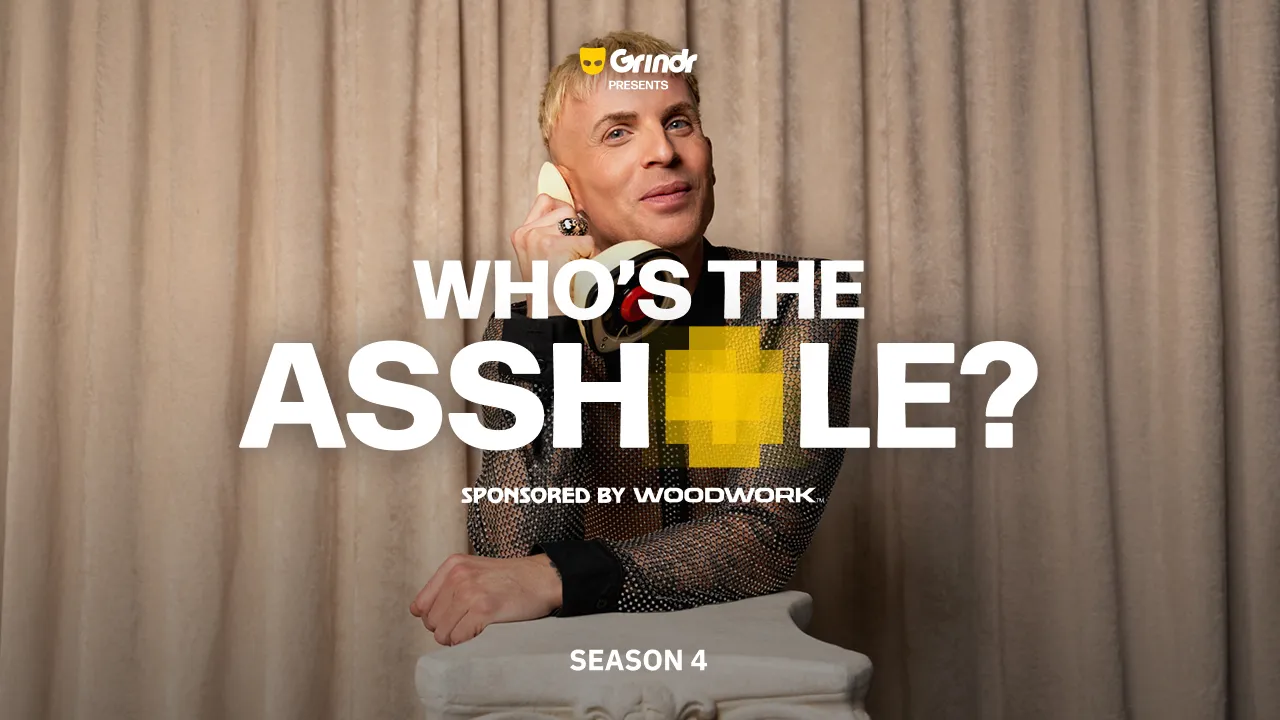ENM Relationships: What Is Ethical Nonmonogamy?

Maybe it’s because everyone saw Challengers or because people finally read The Ethical Slut, but there’s a noticeable uptick in interest regarding ENM relationships. ENM, or ethical nonmonogamy, is a relationship structure that is nonmonogamous, meaning partners are free and encouraged to have relationships with other people. These relationships may be sexual, romantic, or both. In any case, they’re always above the table, and all partners are aware of them.
Sure, ENM can be messy, complicated, and challenging, but so is life. Ethical nonmonogamy can also be beautiful, connective, and freeing. It may take some work, but even serial monogamists aren’t spared from the consistent work and effort that goes into a healthy, happy relationship.
So, if everyone is down, why not learn more about what it means to be ethically nonmonogamous and see if you need to update your relationship status?
ENM vs. cheating
Even though someone is likely sleeping outside their primary relationship in both situations, there’s a big difference between cheaters and the ethically nonmonogamous.
ENM relationships aren’t just built on trust; they center on mutual agreement and a clear understanding of boundaries. Cheating is basically the exact opposite.
In an ENM, both or multiple parties consent to a multi-partner practice. Cheating involves circumventing that consent, usually causing a breach of trust and potentially ending the relationship.
In short, ENM excludes cheating because everyone is playing by the rules. They’re just your rules, not the ones pre-ordained for your relationship by other labels, people, or society.
Monogamy vs. ethical nonmonogamy
Before we dive deeper into ENM, let’s explore its counterpart: monogamy.
What is monogamy, really? Easily the most common relationship archetype, it refers to a relationship between two people who are exclusive to one another — usually both sexually and emotionally. Basically, you have one partner at a time.
So, what is ethical nonmonogamy? ENM is an umbrella term for having more than one partner at a time, with some twists and turns thrown in there based on the couple’s or group’s needs. It’s that simple.
Many people, especially queer folks, feel like something is stifling about how most people practice monogamy. There’s often an inherent assumption that people are property — you belong to me, I belong to you. These relationships are also challenging for those who struggle to curb their desires, ultimately leading them to cheat and betray when they might have no trouble handling an ENM relationship.
As anyone in the LGBTQ+ community will tell you, there’s no “right” way to love. Much of the pushback against nonmonogamous relationships originated from religion and patriarchal systems of control. Some would even say the “ethical” part of the ENM name should be dropped since it’s no more or less ethical than monogamy and doesn’t need differentiating.
Not that we’re hating on monogamous relationships. Monogamy makes perfect sense, but it makes just as much sense to seek ethical nonmonogamy. It all comes down to what you and your lover(s) want and what feels best.
Types of ethical nonmonogamy
With so many ways to customize the rule set, there are infinite ways to play the game. Still, relationships tend to fall into one of several categories. Here are the overarching types of ethical nonmonogamy you’ll often see:
Open relationships
Despite what you might assume about open relationships — often seen as a death knell for the monogamous — they can absolutely work and be extremely healthy, provided both parties are willing to put in the effort.
Open relationships typically preclude commitments to others outside of the two-person relationship. They’re primarily for pursuing sexual connections. But even if that’s not the case, the primary relationship is always the priority over any other.
Monogamish
Monogamish is a term coined by Dan Savage, a prominent sex advice columnist, writer, and LGBTQ+ activist. This term is reserved for those who are mostly monogamous but won’t say no to a bit of fun. Whether they allow flirting, threesomes, swinging, or friends with benefits, monogamish couples almost always keep outside encounters sexual rather than romantic. Often, adherents exclusively play with third parties as a couple.
Polyamory
Polyamory probably takes the crown as the “messiest” type of ENM in the public’s eye, as it involves a lot of moving parts (hands, mouths, and hearts). Polyamory is hard to pin down (as long as everyone understands that it’s not polygamy) because it can be sexual in nature — with two members courting dedicated partners outside their relationship — or much more intimate.
One example would be five people who are all in one relationship together. Sounds confusing? Not to those who have formed their own polycule. These relationships require masterful communication and emotional maturity but can be sexually and emotionally gratifying to all parties.
Polyfidelity
Polyfidelity is a type of ethical nonmonogamous relationship where three or more partners are exclusively dating each other. In this type of polyamorous relationship structure, there is no hierarchy, and all members of the relationship share equal commitment.
Polyfidelity is different from other ENM relationships because there are no primary or secondary partners, and nobody dates outside the polycule.
Throuples and quads
As you might guess, a throuple is a couple but with three people. It’s monogamy-adjacent in that all three partners are committed to each other, although they also might choose to have partners outside the primary three. Throuples are nonhierarchical, which means they are all primary partners.
Just like a quad cappuccino has four espresso shots, a quad relationship is a romantic engagement with four committed people. Also, like a quad cappuccino, it brings a lot of energy, but it can be delicious.
Quads can take various forms. Sometimes, they include overlapping sets of committed partners, but not everyone is in a sexual or romantic relationship with everyone else. In other quads, all four partners are equally enamored with each other, just as they are in a throuple.
Relationship anarchy
If you’re thinking this is basically “The Purge,” but with sex, well, your heart’s in the right place. But as scary as anarchy may sound, it’s much less intense than you think. Relationship anarchy is more about considering every person in the relationship equally important.
For example, in an open relationship, the primary couple is prioritized. An anarchic relationship wouldn’t have that hierarchy. This model stems from a desire to focus on autonomy and personal freedoms, never pinning down or categorizing your relationships as one single thing unless you choose to.
Swinging
Swinging is one of the more unique entries on this list, and not just because it evokes dated notions of key parties and “my wife and I saw you from across the bar” vibes. Swingers are committed couples who engage in more social sex. It usually involves more than one couple playing together or swapping partners.
Casual dating
Casual dating might be the form of ethical nonmonogamy most familiar to people who aren’t polyamorous because it’s how most people start relationships. Casual dating is exactly what it sounds like: getting to know people and, yes, maybe even hooking up more casually with few to no strings attached.
People in ENM relationships might use casual dating to meet and connect with new people outside their primary relationship. This is cool as long as everyone is on the same page.
{{video-inline-cta}}
How to practice an ENM relationship: 6 tips
There’s no definitive rulebook for successful ethical nonmonogamous relationships. You write one with the people in it. Still, we’ve got some tips to ensure all parties feel comfortable and emotionally fulfilled in an ENM relationship:
1. Communicate
Truthfully, any relationship must have open communication to succeed. But it’s doubly important in ENM relationships. Don’t hide your feelings or bite back thoughts. Everyone should feel like they’re on the same page.
2. Always be honest
If you’re communicating but aren’t sharing how you really feel, you may as well not be communicating. Jealousy, anger, sadness, and confusion are all common in ENM relationships, so don’t hold back if you feel some kind of way.
3. Do your research
Before making any commitments, we recommend you do some hefty research to ensure this is for you. Even breaching the topic can be challenging — let alone acting on it — so the more information you have about what to expect, the better.
4. Prioritize your mental health
At the end of the day, you have to be your own advocate. If ENM doesn’t feel good to you, you’re the only person who can do something about it. Your mental and physical well-being should always take priority.
Don’t hold anything in or let it fester to make others happy. It’s challenging, but bottling things up will only make you more upset or frustrated.
5. Always stay safe
Safety is a must in ENM relationships. Conversations about condoms, PreP, and STI screenings have to happen. Bringing others into the fold is already hard enough on the psyche, so set physical boundaries to ensure you’re always safe and healthy.
6. Face jealousy — and envy — head on
Jealousy is a natural human emotion that most people in ENM relationships will experience at some point. But it’s crucial to recognize and process it when it comes up so it doesn’t negatively affect you or the relationship.
It also helps to recognize the difference between jealousy and envy. Jealousy is a possessive feeling that arises when you’re afraid someone will take something from you. Envy is when you want what someone else has.
Are you jealous because you think the person will take your partner away? Or are you envious of the person who gets to spend time with your partner? It’s nuanced, but the concept can help you process emotions.
Why people choose ENM relationships
If you’re monogamous, you might wonder what draws others to ENM. Here are a few reasons people gravitate toward these less conventional relationships:
Sexual exploration
The spectrum of sexuality grows more vibrant by the moment, and many people want to discover where they fall.
People in ENM relationships frequently have different sexualities (e.g., a bisexual man and a heterosexual woman). In these instances, both parties agree to give themself or their partner space to be their most authentic self so they don’t feel forced to stifle their sexual identity.
Unmet needs
Nobody can be everything their partner needs. Many accept that as a fact of life, satisfied with a monogamous relationship and a robust social life full of platonic bonds.
But what about unmet physical or sexual needs? That’s where ENM comes in. It’s an excellent way to ensure everyone gets what they want without compromising on their basic urges.
An abundance of love
Some don’t feel satisfied unless they’re free to express their love to multiple people. Anyone overflowing with love might gravitate toward ENM as an outlet to experience and give this abundance of affection.
Is ENM a good fit for me?
You may never know if ethical nonmonogamy is a good fit for you without giving it a try, but answering these three questions can help you take a few steps in that direction:
Are you a jealous person?
Listen, jealousy isn’t necessarily a bad thing. In fact, many relationship experts would say a healthy amount of jealousy can actually be good for a relationship. However, jealousy that manifests in nastiness or contempt might mean ENM is not your jam (at least for now).
Are you honest?
Not only is honesty the best policy, but it’s also a requirement for an ENM relationship. Contrary to popular belief, you’re totally allowed to keep some things private — even from a partner — but that’s different from lying to them or avoiding the truth. If you struggle to be honest with your partners, ENM might not be a good fit for you.
Do you have emotional security?
This might be the most challenging question to answer. There are just so many contributing factors. It’s no secret that ENM relationships take work, so you need to start with a solid foundation of emotional security, both with yourself and your relationship.
Find like-minded lovers on Grindr
Want to give ENM relationships a try? Plenty of open and eager individuals on Grindr would love to show you the way.
Get the Grindr app and find a partner (or two, or three, or four) who understands love the same way you do.










.jpg)
.gif)
.gif)
.webp)


.webp)









